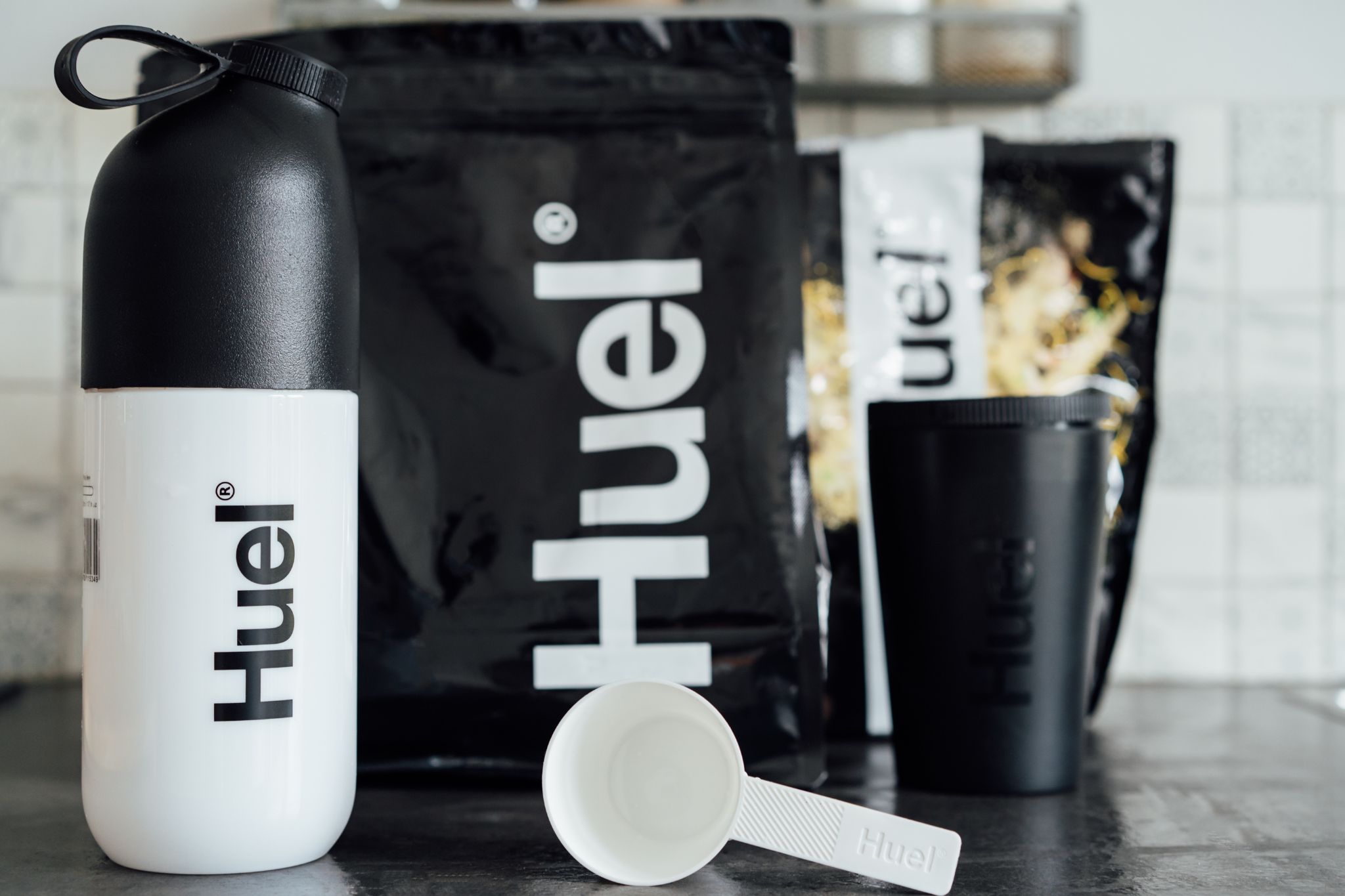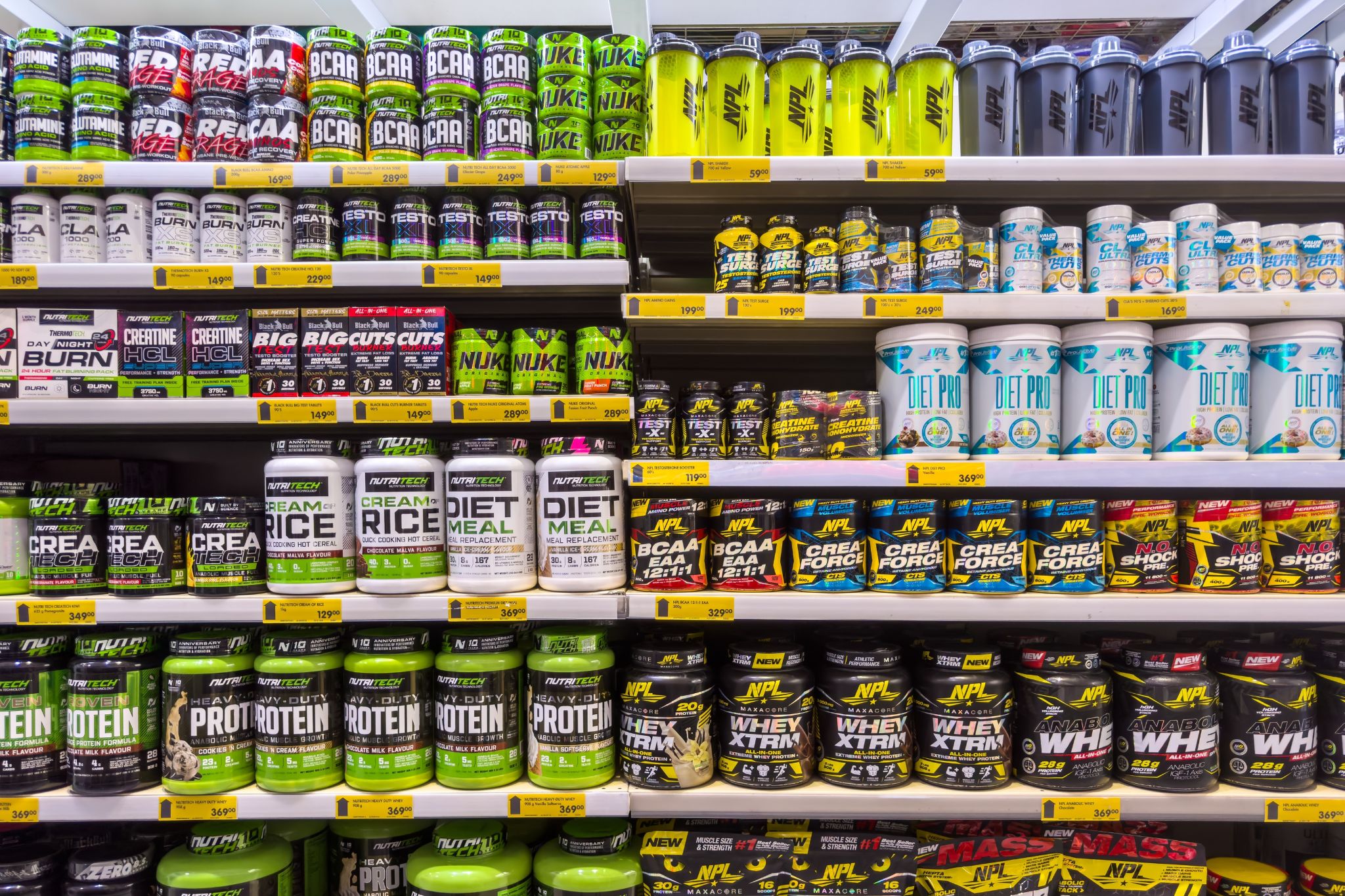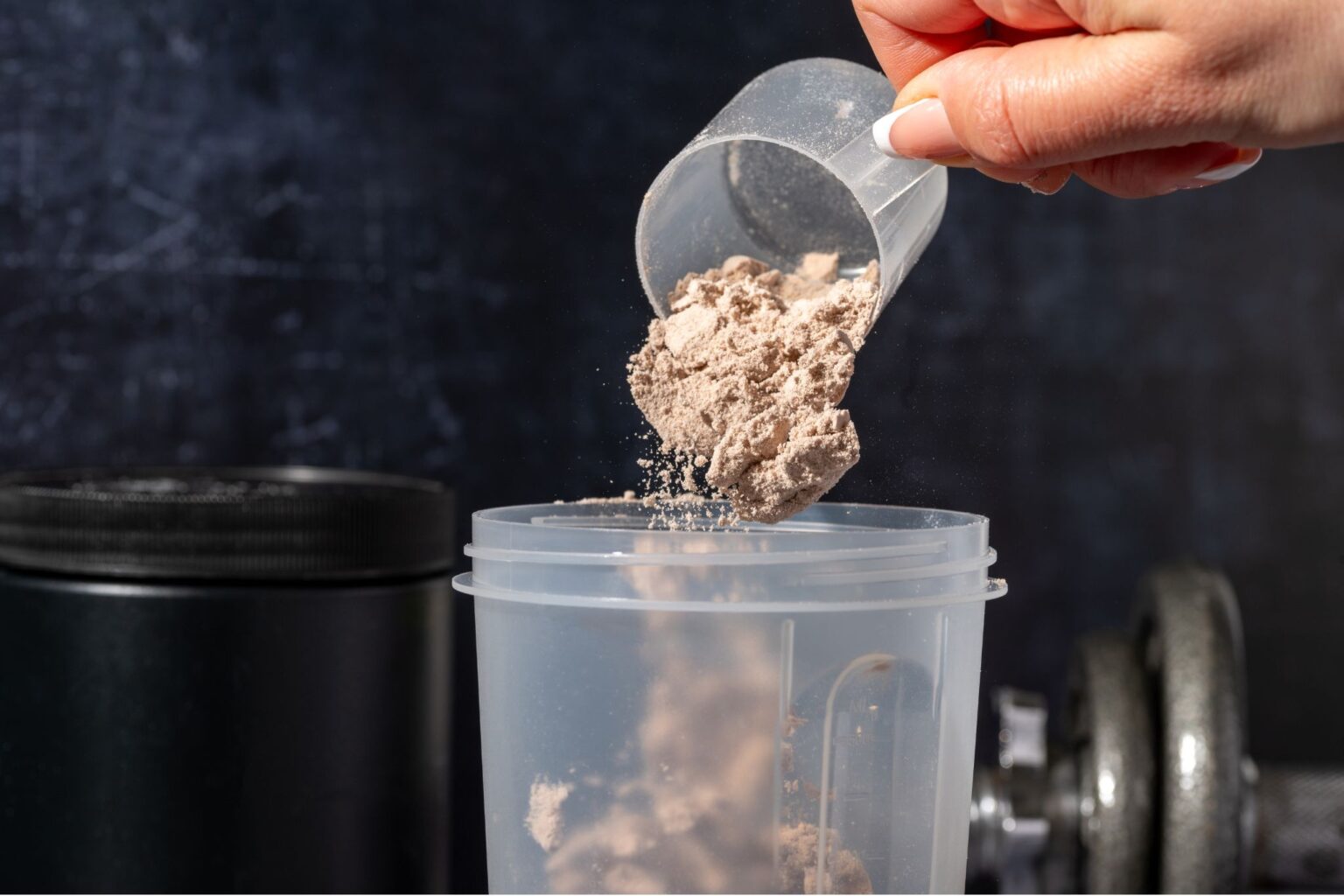We are living in the golden age of protein: There’s protein popcorn, protein chips, and even protein water. In a time when this macronutrient is king, it’s worth asking where this protein is coming from and what else might be in it.
A new study conducted by Consumer Reports reveals that many mainstream brands of vegan and whey protein powders and shakes contain unsafe levels of lead and other metals. Consuming these heavy metals can lead to a multitude of adverse health effects.
What Was the Study?
To conduct the study, Consumer Reports analyzed 23 popular brands of protein powders and shakes. CR anonymously bought both animal- and plant-based protein products online from retailers like Amazon and in person from stores like the Vitamin Shoppe.
Scientists tested multiple lots of each brand and analyzed the amounts of total protein, arsenic, cadmium, and lead in each product.
The Results
While technically no amount of lead is safe to consume, for it to raise serious concerns, the amount of lead had to be above 0.5 micrograms per day. Ultimately, 70% of the products CR tested contained more than this level of lead.

According to the study, the highest concentrations of lead were found in Naked Nutrition’s Vegan Mass Gainer and Huel’s Black Edition, which contained 7.7 micrograms and 6.3 micrograms of lead, respectively. These products were 1,575% and 1,288% above CR’s level of concern for lead.
All of the non–plant-based protein powders except one tested above this 0.5-microgram threshold. The only one to pass through at below-threshold levels was MuscleMeds’ Carnivor Mass powder. Ultimately, six plant-based, five dairy-based, and one beef-based protein product contained too high an amount of lead.

Lead was not the only concerning material found in these powders and shakes. “One serving of Huel’s Black Edition plant-based protein powder contained 9.2 micrograms of cadmium, more than double the level that public health authorities and CR’s experts say may be harmful to have daily, which is 4.1 micrograms,” CR reporter Paris Martineau said. The amount of cadmium in Vega’s Premium Sport powder also just hit above that 4.1-microgram level.
Optimum Nutrition’s Serious Mass whey protein powder contained 8.5 micrograms of inorganic arsenic, which is double the amount that scientists say is safe.
CR last conducted a study on protein powders in 2010. Compared to this prior study, the 2025 one demonstrated far higher amounts of lead across a greater number of products.
While exposure to lead is most dangerous for children, it can still have severe effects on adults. According to the Mayo Clinic, “Exposure to even low levels of lead can cause damage over time.” Thus, these levels of lead in a product like protein powder, which many people consume daily, are particularly worrying.

In children, lead exposure can lead to developmental delays and learning disabilities. For adults, when lead builds up in the body over time, it can result in high blood pressure, joint and muscle pain, difficulty with memory, and miscarriages in pregnant people, along with other symptoms.
Prolonged overexposure to cadmium, according to an NIH study, can cause cancer, kidney damage, bone disease, and fertility problems. The FDA states that consuming too much inorganic arsenic may lead to skin, bladder, and lung cancers, as well as cardiovascular disease.
How Did This Happen?
Unlike drugs, the FDA does not test or regulate protein powders and shakes. Manufacturers do not have to prove that their product is safe, and there is no set standard for the allowance of heavy metals in these products.
“The FDA can take action if it finds unsafe lead levels, but the lack of enforceable standards means it doesn’t happen nearly enough,” Brian Ronholm, CR’s director of food policy, said in the CR report. “The FDA’s lack of funding and staff makes the problem worse. Establishing enforceable limits in foods and supplements would go a long way in protecting consumers.”
CR reporter Paris Martineau suggests that the protein craze is also not helping matters. According to a recent study from the USDA, Americans are getting more than enough protein, and most people don’t need to load up on powders and shakes.

The current recommended daily amount of protein for adults is 0.8 g per km of body weight. And there is such a thing as too much protein. According to an NIH study, “Chronic high protein intake (>2 g per kg BW per day for adults) may result in digestive, renal, and vascular abnormalities and should be avoided.”
What Should Consumers Do?
If you’re someone who regularly consumes protein powders or shakes, it may be worth looking at CR’s full report to see if it tested your product. CR broke down its results into three categories: Products to Avoid, Okay to Eat Occasionally, and Better Choices for Daily Consumption.
It is also worth looking at your diet and seeing how much protein you’re getting without protein supplements; it very well may be an adequate amount.
If you’re concerned about heavy metals in protein powders, CR also suggests putting naturally protein-rich foods like peanut butter and yogurt into your shakes instead.
Read the full article here





